McKinsey: How AI in Healthcare Can Improve Consumer Experiences
McKinsey: Generative AI in healthcare transforms CX with predictive care, efficiency & trust.


The healthcare industry stands at a pivotal moment where technological innovation meets urgent consumer demands. As patients increasingly expect seamless, personalized experiences similar to those in retail and financial services, healthcare organizations are turning to artificial intelligence to bridge the gap between operational efficiency and exceptional care delivery.
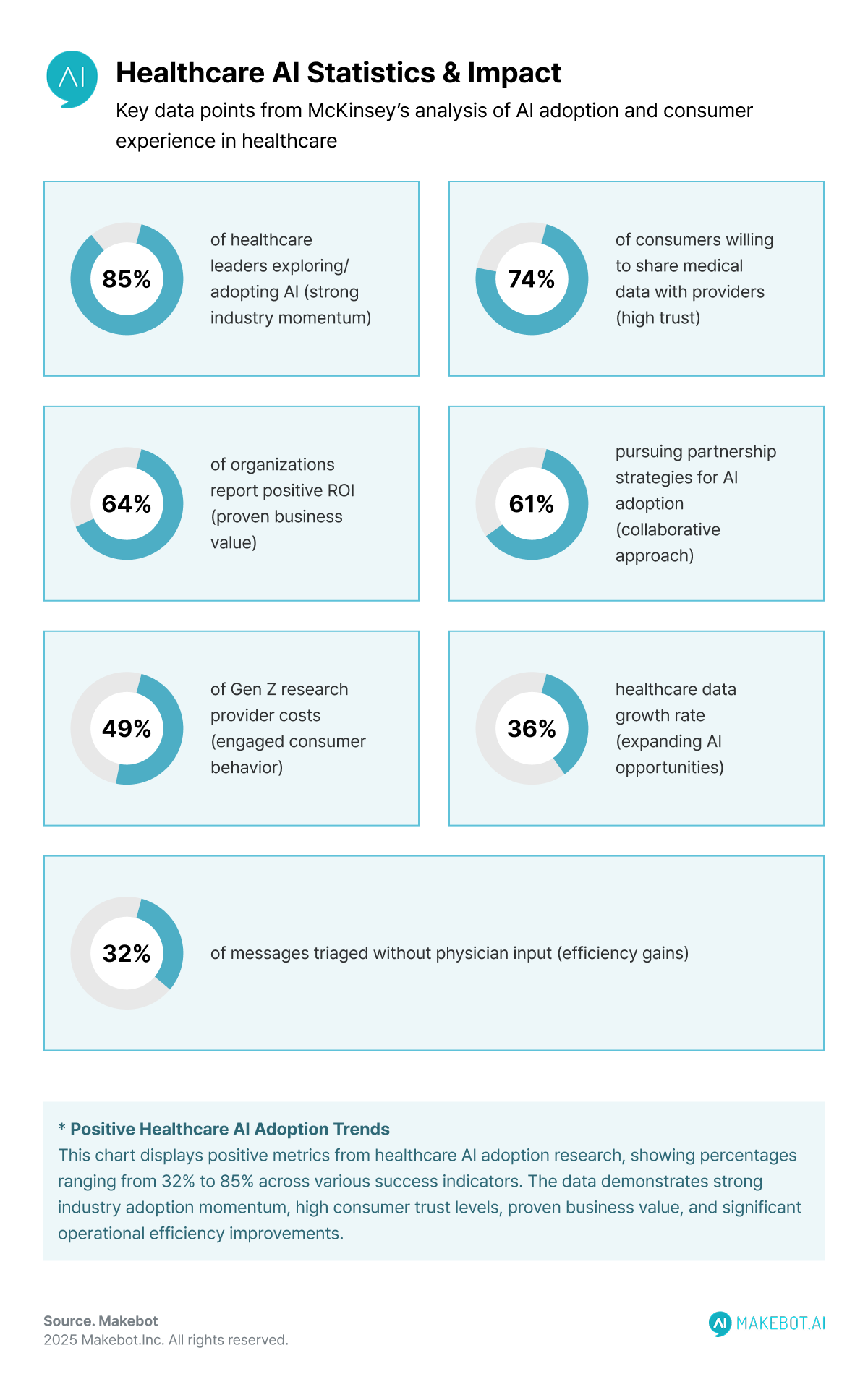
Current Healthcare Consumer Experience Challenge
Healthcare consumers today face a labyrinthine system that often fails to meet basic expectations. McKinsey research reveals that 25% of surveyed consumers report being unable to access care when needed, while administrative costs account for approximately 25% of the more than $4 trillion spent annually on healthcare in the United States. This disconnect between consumer needs and system capabilities has created an urgent imperative for transformation.
The complexity extends beyond access issues. Consumers struggle with everything from understanding insurance coverage to navigating cost transparency, with 38% of respondents to McKinsey's 2024 Consumer Health Insights Survey reporting they research provider costs in advance—a figure that jumps to 49% among Gen Z consumers who demand greater price transparency.
10 AI Healthcare Trends to Watch in 2025 and Beyond. Read more here!
AI Revolution in Healthcare: Data as the Foundation
Modern healthcare generates approximately 30% of the world's data, with a compound annual growth rate expected to reach 36% by 2025. This data abundance, combined with advances in generative AI in healthcare, creates unprecedented opportunities for transformation. Unlike traditional AI applications limited to structured data, generative AI can process unstructured sources such as call transcripts, clinical notes, and patient communications—previously untapped goldmines of consumer insights.
Healthcare organizations possess a unique advantage: consumers demonstrate greater willingness to share personal health information with healthcare providers compared to employers, government entities, or technology companies.
McKinsey's research indicates that 74% and 61% of respondents would share medical results and personal data with primary care providers and health insurers, respectively, provided the information improves their health and wellness outcomes.
Gartner Insights: Conversational GenAI Set to Transform CX by 2025. More here!
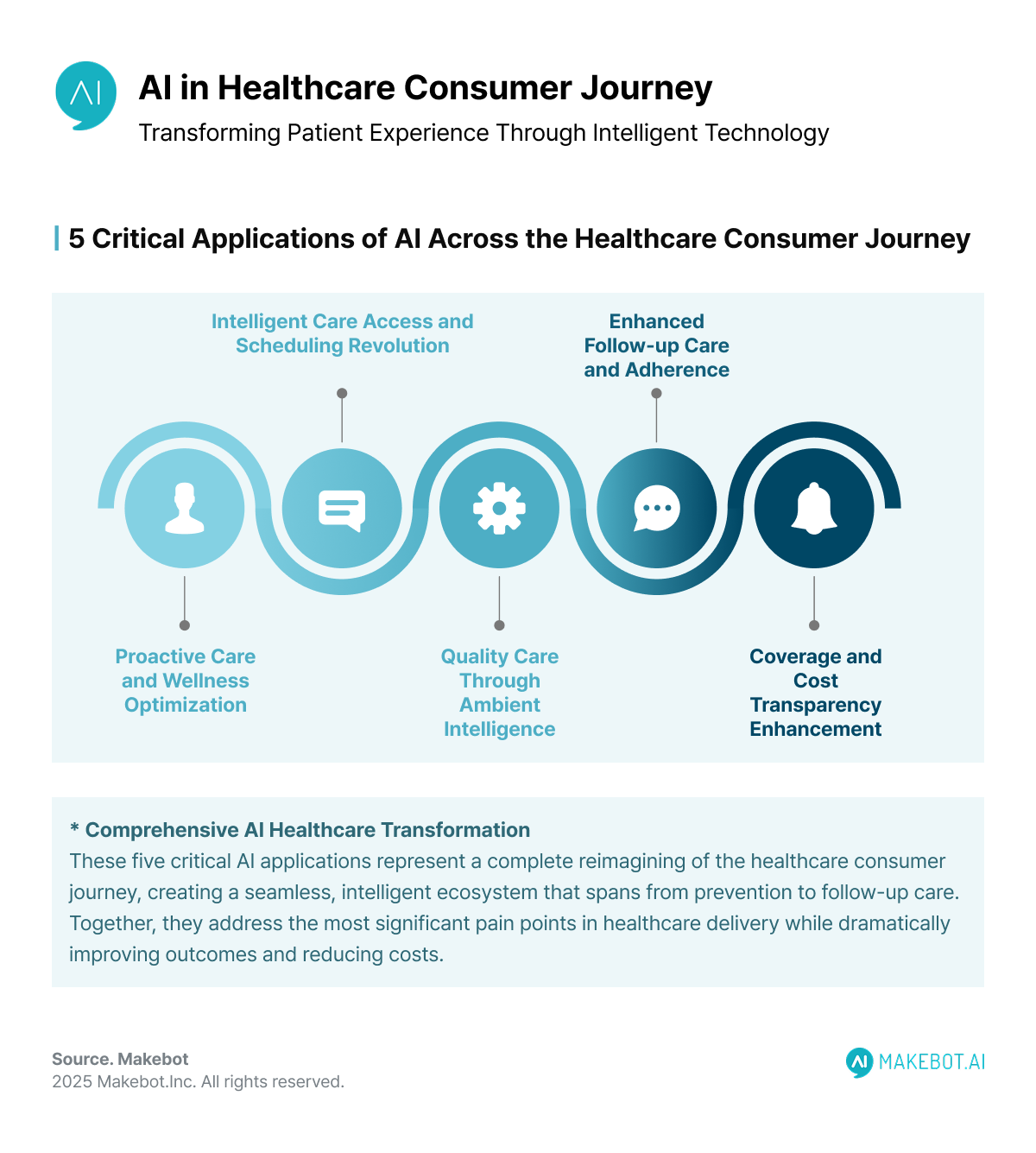
Five Critical Applications of AI Across the Healthcare Consumer Journey
1. Proactive Care and Wellness Optimization
AI in medicine enables predictive risk modeling that identifies health issues before they become critical. Machine learning algorithms analyze patient trajectories while generative AI personalizes intervention strategies.
Real-World Impact:
- Whoop Coach: Uses biometric data and ML on consumer journey entries for individualized health coaching
- Integrated Networks: AI identifies care gaps and suggests evidence-based next steps
- Preventive Focus: Transforms reactive treatment into proactive health management
2. Intelligent Care Access and Scheduling Revolution
Customer service experience transformation through AI-powered digital front doors provides 24/7 intelligent intake and personalized care recommendations.
Quantified Results:
- No-Show Reduction: Total Health Care achieved 34% reduction in missed appointments using eClinicalWorks' Healow AI
- System Savings: No-shows cost US healthcare $150+ billion annually
- Efficiency Gains: AI couples patient preferences with provider-specific data for streamlined experiences
3. Coverage and Cost Transparency Enhancement
AI synthesizes complex insurance information into personalized, understandable summaries tailored to individual communication preferences including language, reading level, and channel preferences.
Implementation Benefits:
- Enhanced cost estimator tools accounting for specific services and insurance plans
- Post-service bill explanation and resolution assistance
- Transparent coverage information delivery
4. Quality Care Through Ambient Intelligence
Innovative primary care practices implement ambient listening technology allowing physicians complete patient focus while AI handles documentation and administrative tasks.
Quality Metrics:
- Patients perceiving poor care are 3x more likely to switch providers
- Natural language processing identifies patient needs and notifies nursing staff automatically
- Frees healthcare professionals for direct patient care while ensuring comprehensive documentation
5. Enhanced Follow-up Care and Adherence
Generative AI in healthcare synthesizes visit notes, discharge summaries, and insurance information into jargon-free, empathetic patient communications.
Proven Results:
- Kaiser Permanente: 32% of messages triaged without physician input
- Reduced clinician administrative burden
- Improved patient engagement and treatment adherence
Operational Excellence
Beyond patient-facing applications, AI transforms healthcare service operations across multiple domains. McKinsey analysis reveals that healthcare organizations using AI for conversational dialogue and agent empowerment see significant improvements in CX metrics.
Innovative primary care practices are implementing AI-powered agent copilots that provide real-time support during patient interactions. These systems analyze customer sentiment and suggest optimal responses based on prior interactions and knowledge libraries. McKinsey research indicates that 30-40% of claims call handling time consists of dead air as agents search for information—inefficiency that AI virtual assistants can eliminate.
Voice analytics capabilities enable real-time analysis of millions of call recordings, uncovering detailed reasons for contact and enabling targeted containment strategies. This approach is particularly valuable given that claims and care-finding inquiries account for 50-70% of total call volume at payer organizations
Implementation Roadmap
1. Data Infrastructure and Integration
Delivering tangible consumer value through AI requires integrated, consumption-ready data—a challenge representing approximately 70% of AI development work. Healthcare organizations must connect fragmented data sources across claims, electronic health records, marketing platforms, and call center systems while ensuring demographic diversity to prevent algorithmic bias.
2. Consumer Experience Prioritization
Leaders must assess and prioritize AI investments based on consumer experience impact rather than technical feasibility alone. Cross-functional engagement, particularly with clinical leadership, ensures alignment between technological capabilities and actual patient pain points.
3. Real-time Insight Optimization
Successful AI implementation requires connecting multiple touchpoints across data sources into personalized consumer journeys. This involves analyzing appointment patterns, outreach effectiveness, and interaction histories to develop predictive analytics that inform future interventions.
4. Comprehensive Risk Mitigation
Healthcare AI faces unique challenges including consent requirements, privacy regulations, and potential health implications. Organizations must establish governance processes anchored in AI-use transparency, algorithm documentation, and bias mitigation strategies. The Department of Health and Human Services' AI Task Force continues developing policies to protect patients as part of federal AI safety initiatives.
5. Capability Development and Talent Strategy
Long-term success requires balancing upskilling existing talent with hiring AI-specific expertise. Successful organizations employ copilot models where employees work alongside AI tools to make incremental improvements while maintaining human oversight and intuition for error mitigation.
Quantifying the AI Impact: ROI and Adoption Metrics
McKinsey's latest survey of healthcare leaders reveals significant momentum in AI adoption, with 85% of respondents exploring or having already adopted generative AI capabilities. Among organizations implementing AI use cases, 64% report anticipated or realized positive ROI, indicating strong confidence in the technology's value proposition.
The financial impact extends beyond operational efficiency. Partnerships represent the dominant strategy for AI adoption, with 61% of implementing organizations pursuing third-party vendor collaborations for customized solutions. Hyperscaler partnerships are particularly attractive, with 46% of organizations seeking these relationships for data management expertise.
AI's scope in healthcare continues expanding beyond administrative efficiency. While administrative improvements and clinical productivity remain primary focus areas, patient engagement and IT infrastructure optimization represent growing opportunities for value creation.
Future Outlook
The trajectory of AI in healthcare points toward increasingly sophisticated applications that seamlessly integrate into care delivery workflows. As organizations mature their AI capabilities, use cases will expand to include external patient engagement and quality-of-care applications that further enhance overall consumer experiences.
Success in this evolving landscape requires value-driven strategy, robust delivery capabilities, and comprehensive organizational management. Healthcare organizations that develop strong consumer foundations through AI implementation will be positioned to compete effectively in an increasingly consumer-empowered market.
The transformation from current healthcare experiences to AI-enhanced consumer journeys represents more than technological advancement—it embodies a fundamental shift toward patient-centered care delivery that prioritizes convenience, transparency, and personalized engagement at every touchpoint.
As modern healthcare continues its digital evolution, organizations that successfully harness AI's potential to reshape consumer experiences will not only improve patient satisfaction and outcomes but also achieve sustainable competitive advantages in an increasingly complex and demanding healthcare marketplace.
Transform Your Healthcare CX with Makebot
McKinsey’s findings show that generative AI can revolutionize patient experiences—from predictive care to real-time cost transparency. Makebot delivers industry-specific AI chatbot and LLM solutions for healthcare, empowering providers to streamline scheduling, automate patient communications, and improve satisfaction while reducing costs. Let’s build a smarter, patient-centered future together.
📩 Email us: b2b@makebot.ai
🌐 Learn more: www.makebot.ai



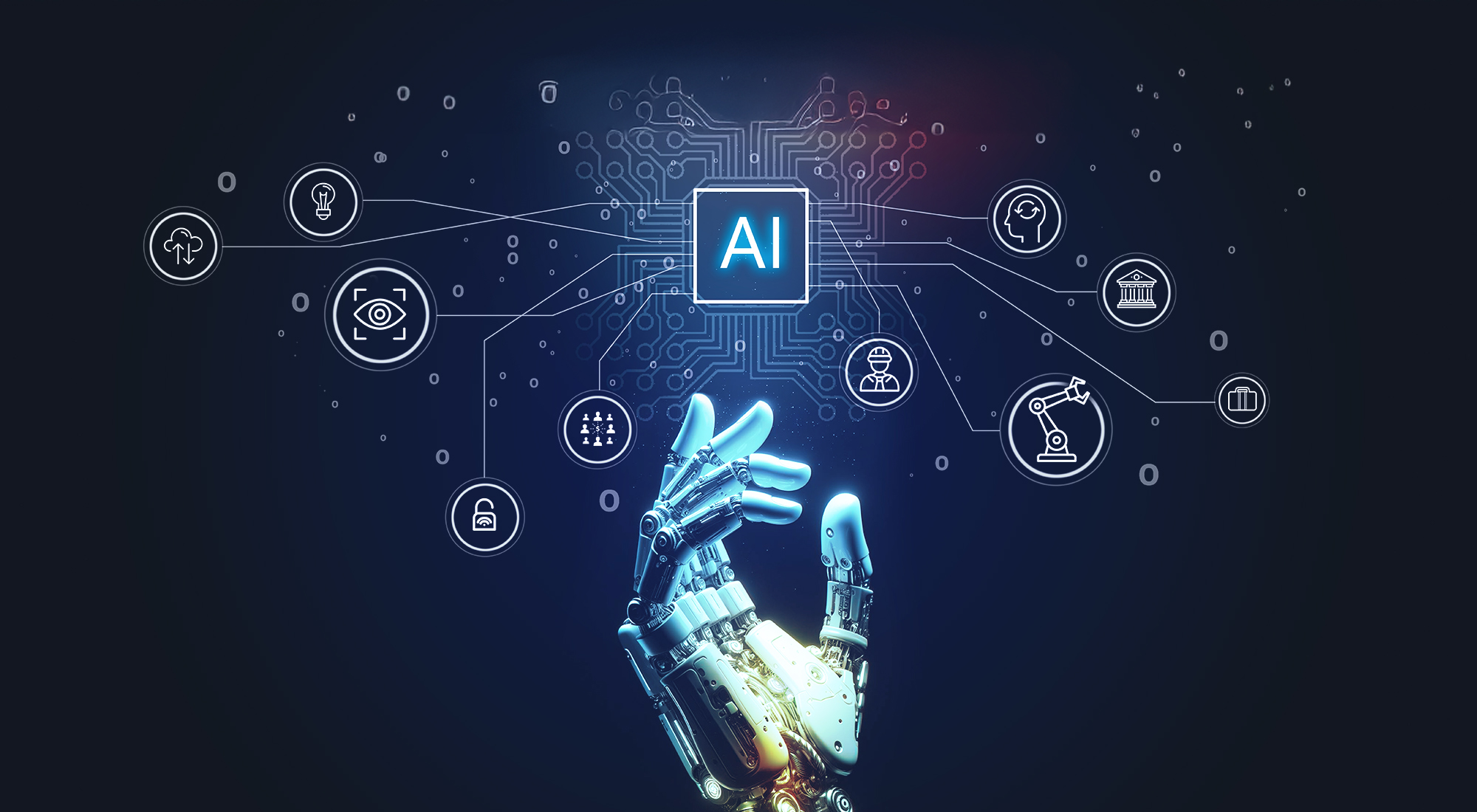

.jpg)

.png)






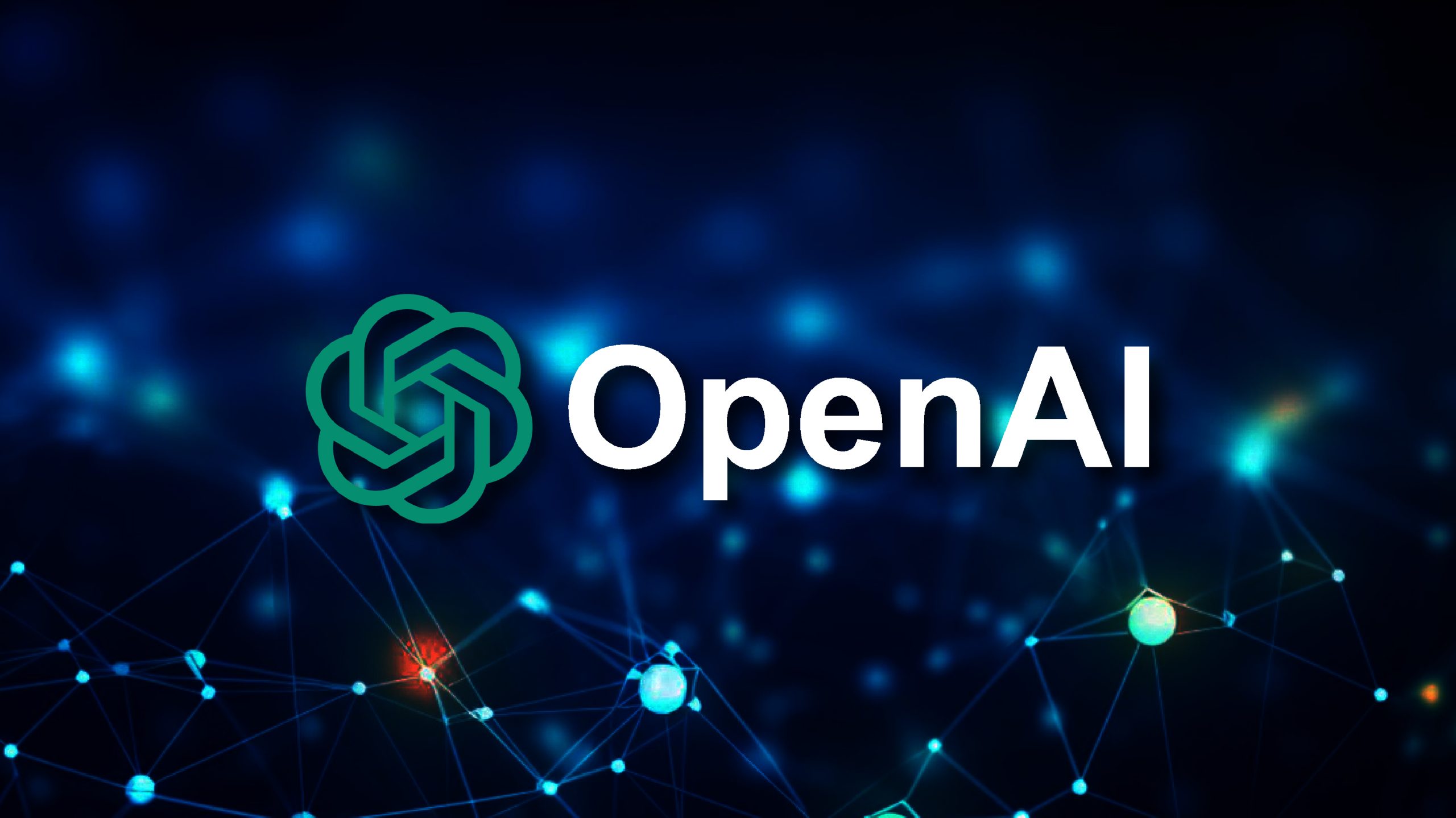



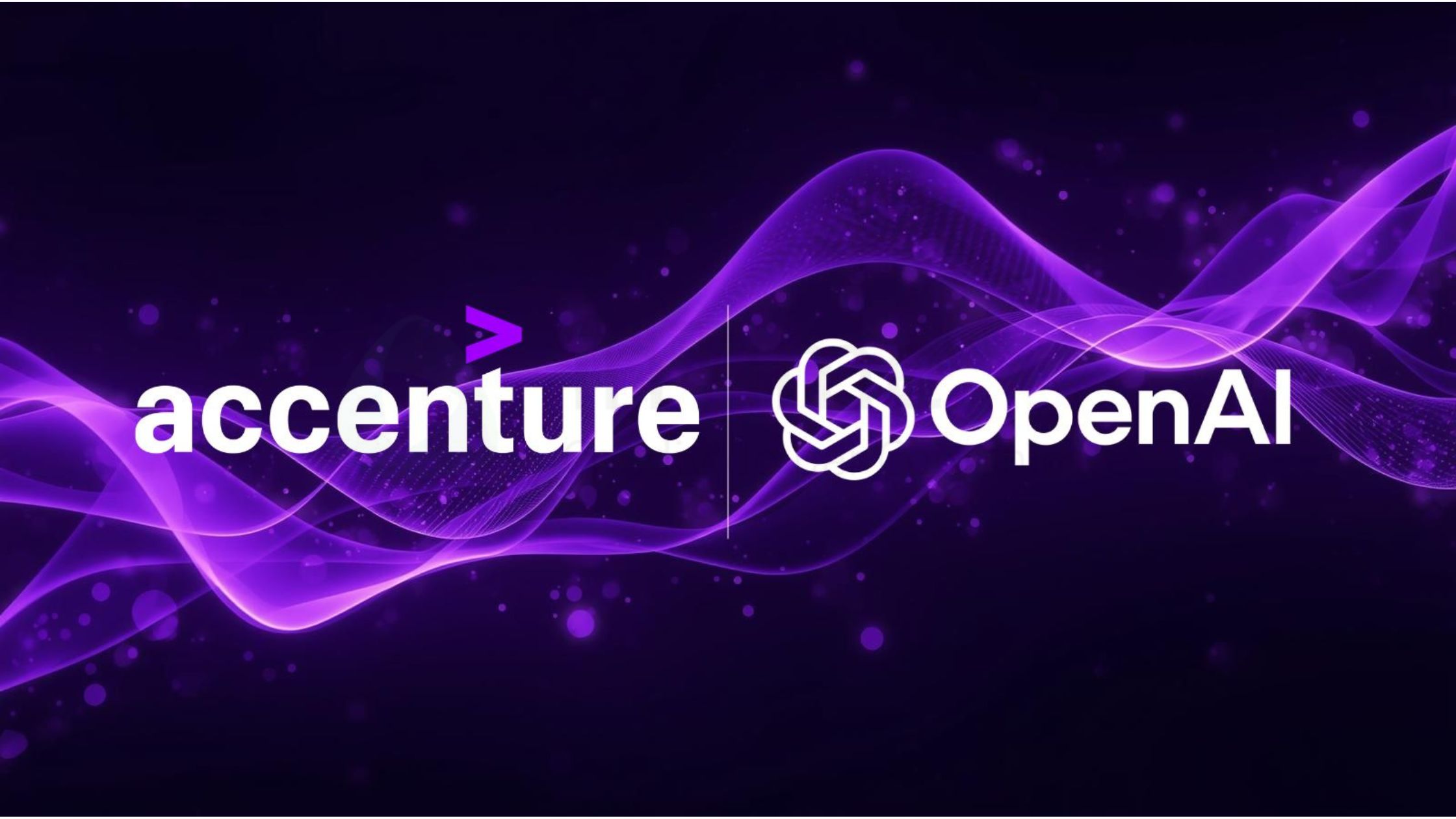
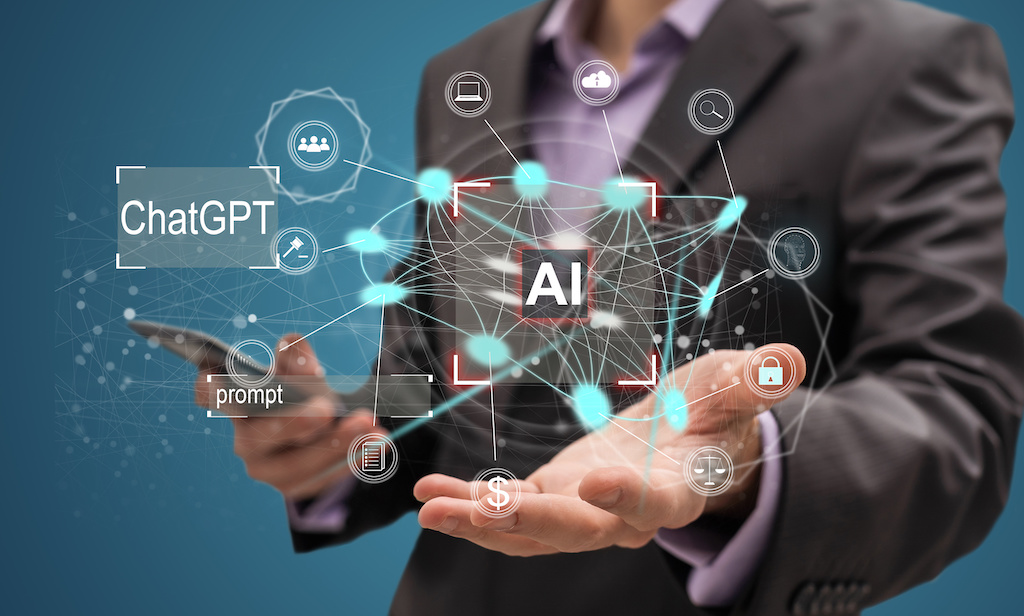










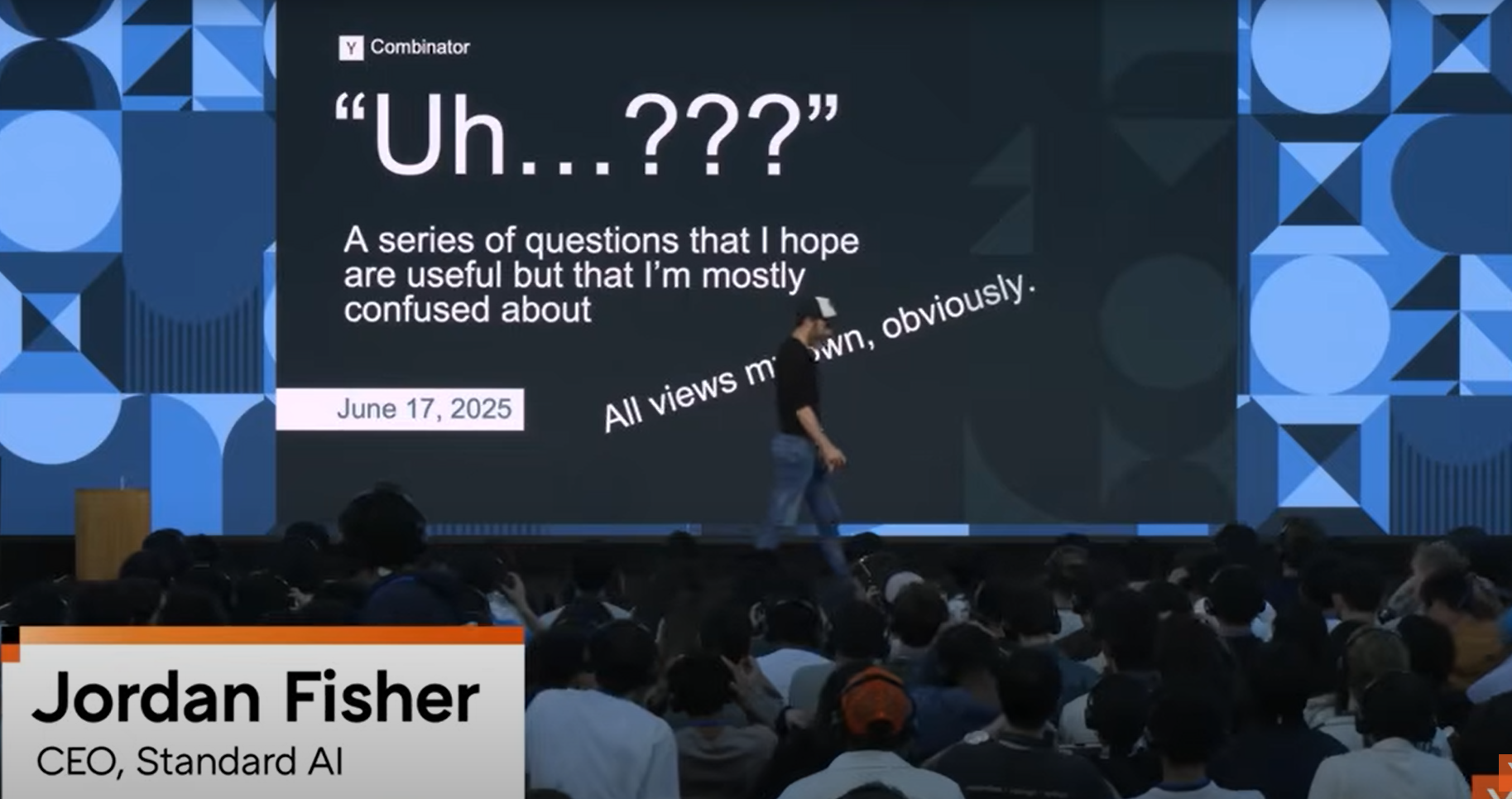



















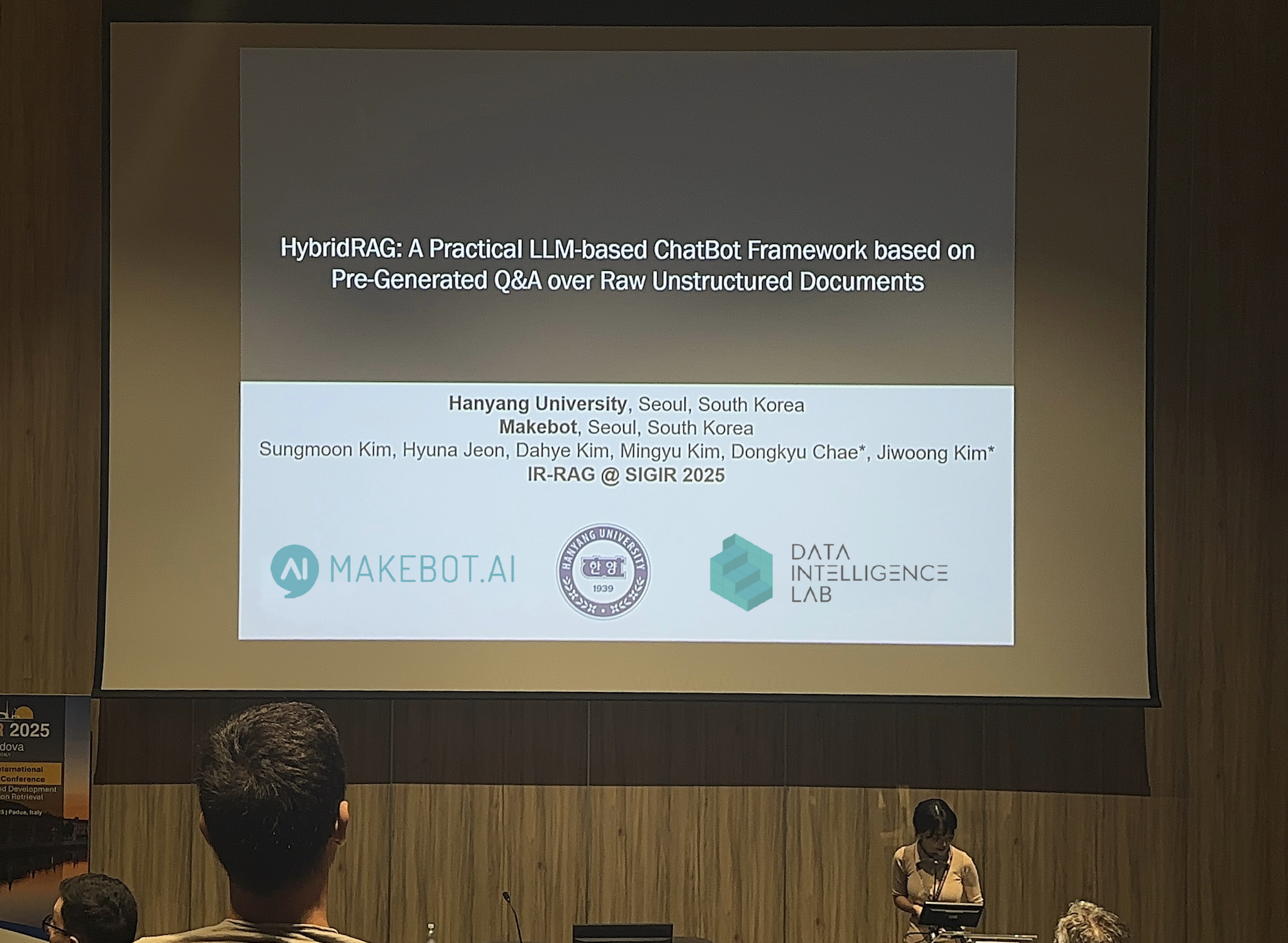









_2.png)


















.jpg)



















